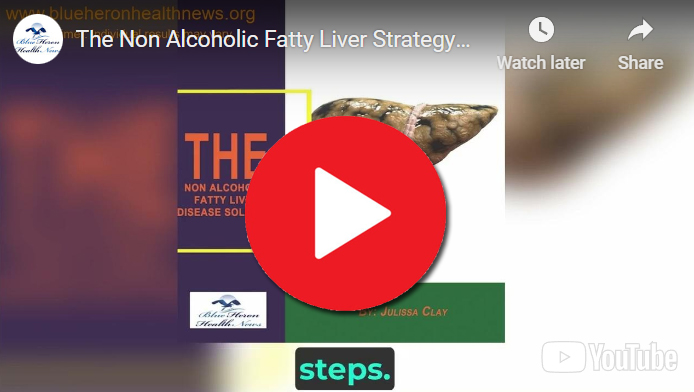
The Non Alcoholic Fatty Liver Strategy™ By Julissa Clay the program discussed in the eBook, Non Alcoholic Fatty Liver Strategy, has been designed to improve the health of your liver just by eliminating the factors and reversing the effects caused by your fatty liver. It has been made an easy-to-follow program by breaking it up into lists of recipes and stepwise instructions. Everyone can use this clinically proven program without any risk. You can claim your money back within 60 days if its results are not appealing to you.
How does bariatric surgery impact fatty liver disease?
Bariatric surgery can have a significant and often positive impact on fatty liver disease, particularly for individuals with non-alcoholic fatty liver disease (NAFLD) and its more severe form, non-alcoholic steatohepatitis (NASH). Here’s a detailed look at how bariatric surgery affects fatty liver disease:
1. Significant Weight Loss
- Impact: Bariatric surgery leads to substantial and sustained weight loss, often in the range of 20-35% of total body weight, depending on the procedure.
- Effect on Fatty Liver Disease: Since weight loss is a key strategy in managing NAFLD, the significant reduction in weight after surgery can greatly reduce liver fat. Studies show that weight loss after bariatric surgery can lead to a reduction in liver fat by 30-80%, depending on the patient’s baseline condition.
2. Reduction of Liver Inflammation and Fibrosis
- Impact: Bariatric surgery not only reduces fat accumulation in the liver but also decreases inflammation (a hallmark of NASH) and can even reverse early liver fibrosis (scarring). Research indicates that significant improvements in liver inflammation and fibrosis occur in 70-80% of patients after surgery.
- Effect on Fatty Liver Disease: This reduction in inflammation and fibrosis slows or halts the progression of liver damage, reducing the risk of cirrhosis, liver failure, and other complications.
3. Improved Insulin Sensitivity and Reduced Diabetes Risk
- Impact: Bariatric surgery improves insulin sensitivity, which is essential because insulin resistance is a major driver of fatty liver disease. The surgery can also lead to the remission of type 2 diabetes in many patients, which has a beneficial effect on fatty liver.
- Effect on Fatty Liver Disease: Improved insulin sensitivity helps reduce liver fat deposition, prevents further fat buildup, and promotes better overall metabolic health.
4. Reduction in Cardiovascular Risk Factors
- Impact: Bariatric surgery leads to improvements in other metabolic conditions associated with NAFLD, such as high cholesterol, hypertension, and high triglycerides. This reduces cardiovascular risks, which are common in individuals with fatty liver disease.
- Effect on Fatty Liver Disease: Reducing cardiovascular risk factors improves overall health and reduces the likelihood of heart disease, which is a common cause of death in people with NAFLD.
5. Reversal of Non-Alcoholic Steatohepatitis (NASH)
- Impact: For patients with NASH, bariatric surgery has been shown to resolve steatohepatitis (liver inflammation caused by fat) in 80-90% of cases.
- Effect on Fatty Liver Disease: This can prevent the progression from NASH to cirrhosis, reducing the need for a liver transplant.
6. Impact on Liver Fibrosis (Scarring)
- Impact: Some studies indicate that weight loss achieved through bariatric surgery can reverse mild to moderate liver fibrosis, particularly when weight loss is sustained over time.
- Effect on Fatty Liver Disease: The reversal of liver fibrosis improves liver function and overall prognosis, delaying or preventing the progression to cirrhosis.
7. Long-Term Sustainability
- Impact: Bariatric surgery often results in long-term weight loss, which is essential for the sustained management of fatty liver disease. Many patients maintain the improvements in liver health for years after surgery, provided they adhere to post-surgical dietary and lifestyle guidelines.
- Effect on Fatty Liver Disease: Sustained weight loss helps prevent the recurrence of fatty liver disease and reduces the overall burden on the liver.
Types of Bariatric Surgery and Their Impact
Different types of bariatric surgery may have varying impacts on fatty liver disease, including:
- Gastric Bypass (Roux-en-Y): This procedure is one of the most effective in terms of weight loss and metabolic improvements, leading to significant reductions in liver fat, inflammation, and fibrosis.
- Sleeve Gastrectomy: Also effective in reducing liver fat and improving metabolic health, though the impact may be slightly less pronounced than gastric bypass.
- Adjustable Gastric Banding: This procedure generally results in less weight loss compared to the other two and may not have as profound an impact on fatty liver disease.
Risks and Considerations
While bariatric surgery can dramatically improve fatty liver disease, there are a few considerations to keep in mind:
- Nutritional Deficiencies: After surgery, patients may need to be mindful of potential deficiencies in vitamins and minerals, as nutrient absorption can be affected.
- Liver Function Monitoring: In the immediate post-operative period, rapid weight loss can temporarily increase liver enzyme levels, though this typically stabilizes.
Conclusion
Bariatric surgery is highly effective in managing fatty liver disease, particularly in individuals with severe obesity or NASH. By promoting significant and sustained weight loss, improving insulin sensitivity, and reducing liver inflammation and fibrosis, bariatric surgery can lead to long-term improvements in liver health and overall metabolic health.

The Non Alcoholic Fatty Liver Strategy™ By Julissa Clay the program discussed in the eBook, Non Alcoholic Fatty Liver Strategy, has been designed to improve the health of your liver just by eliminating the factors and reversing the effects caused by your fatty liver. It has been made an easy-to-follow program by breaking it up into lists of recipes and stepwise instructions. Everyone can use this clinically proven program without any risk. You can claim your money back within 60 days if its results are not appealing to you